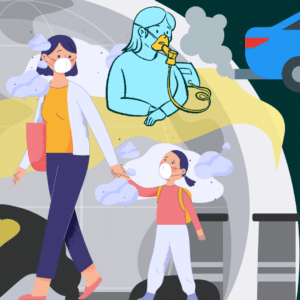Carbon Pricing: Reality and Myths

Canadians deserve to know the truth about the carbon price (tax), and the best way you can help is to talk to others about the facts!
Over 300 Canadian economists signed a statement, covered in the Toronto Star and Globe and Mail, backing carbon pricing as the most cost-effective tool to bring down emissions with negligible impact on inflation — it actually gives more money back to most Canadian families.
Here’s the truth according to experts:
Calls to cancel the price only benefits the top earners in Canada — and hurts the low-income earners.
- 90% of revenues generated by the carbon price are rebated back to households.
- Most families receive more money in rebates than they pay in carbon pricing, particularly those with low or medium incomes.
- Rural residents get an additional rebate. In other words, the policy is designed to ensure it does not raise the cost of living for most Canadians.
Climate change, on the other hand, poses a real threat to Canadians’ economic well-being.
- For example, it increases the risk and severity of natural disturbances, such as fires, floods, and severe storms
- A conservative estimate is that the impacts of climate change will cost our economy at least $35 billion by 2030, and much more in future decades.
- That’s not including the impacts of air pollution on human health and Canadian lives, air pollution that carbon pricing has been shown to significantly decrease.
The carbon tax (price) actually brings emissions down and is the most cost-effective way to do it.
- The reason carbon pricing works is simple: when something costs more (in this case fossil fuels), people use less of it. That is basic economics, and common sense.
- Carbon pricing is the lowest cost approach because it gives each person and business the flexibility to choose the best way to reduce their carbon footprint. Other methods, such as direct regulations, tend to be more intrusive and inflexible, and cost more.
- Contrary to what you may hear, the run on effects of the carbon prices do not change the fact that the carbon tax’s impact on inflation is minimal.
Carbon price has a negligible impact on overall inflation.
- The sharp increase in inflation between 2021 and 2023 was mainly related to:
- The COVID-19 pandemic (disrupted supply chains, rapid growth in the money supply, and pent-up demand), and
- The impact of the Russia-Ukraine war on commodity prices. These forces are global, which is why most global north countries—whether or not they have a carbon price—experienced very similar inflation.
- Corporations raising their prices even more under the guise of inflation.
The tax and rebate structure is effective. Here’s how it works:
- By raising the price of carbon-intensive products, consumers and businesses are incentivized to adopt lower-carbon options, such as smart thermostats, heat pumps, or hybrid/electric vehicles.
- Later, giving back most of the carbon-pricing revenues in rebates doesn’t undermine this goal; consumers still have the incentive to reduce emissions.
- The rebates just ensure that most households come out ahead, because they receive an amount back that is slightly above what the average household spends on carbon pricing.
- Those that reduce emissions the most will come out further ahead; they will pay less in carbon fees but still get the full rebate.
You can listen to more on carbon pricing in the podcast below. We have also included even more information on common myths you might be hearing about carbon pricing and climate change below. The fossil fuel industry wants people to believe that it’s climate policy that’s causing a rise in cost of living, when it’s the industry’s actions and obscene profits that are really harming Canadians (for every dollar of inflation in the last two years in Canada, 25 cents of that has gone to oil and gas and mining extraction profits).
Listen to our podcast The Carbon Tax Lie, to learn more! And sign up for updates on this and related issues below!
Other Myths on Carbon Pricing and Climate Change
- A renewable energy transition is completely possible and people won’t freeze because of it. We deal with this in a different podcast episode.
- The proposed emissions cap on the oil and gas industry will not have a negative impact on the economy either.
- Yes, CO2 is a pollutant in the case of climate change and human caused CO2 causes climate change – it’s not just plant food.
- No, volcanoes are not to blame for more emissions that humans and we should not be “taxing” volcanoes instead. Humans emit 100 times more CO2 than volcanoes.
- When it comes to Canada’s wildfires last year it is NOT arson that’s to blame and the climate crisis made the spate of Canada wildfires twice as likely, read more in untangling climate misinformation around Canada’s raging wildfire.
- Finally, Canada’s forests haven’t absorbed more carbon than they’ve released since 2001. Further, blaming other countries for climate change overlooks both Canada’s high per capita emissions and historical emissions that contributed to the climate crisis. We won’t inspire others to do more on climate change if we continue to contribute a lot more emissions per person than they do.
You can find more on other common climate myths at this website.
